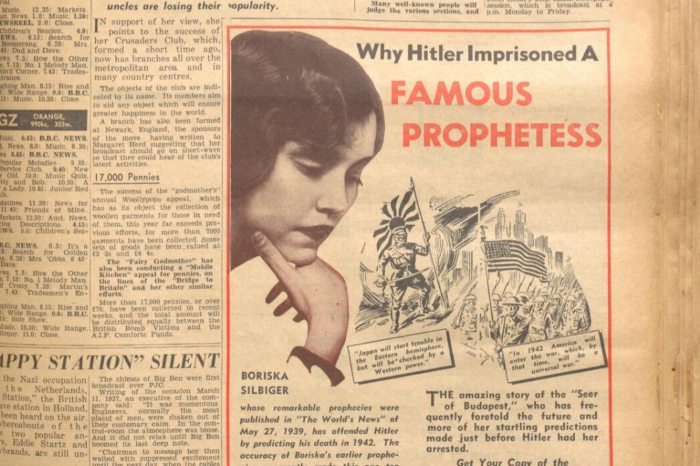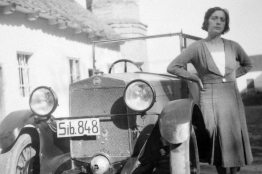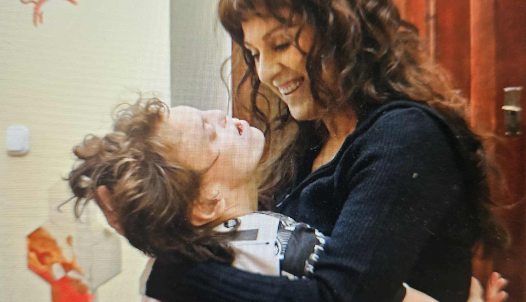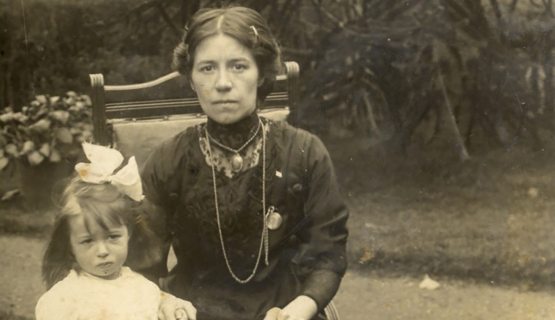Budapest's best-known fortune teller, who consulted in cafes – the story of Boriska Silbiger
In the early 2000s, the director of a cultural institution said to a prominent radio journalist, "Only Silbiger Boriska can give you some guidance on this." "All right, I'll contact her," said the reporter, who was then teased about it for months by his colleagues. Boriska Silbiger was no ordinary professional. Here is the story of Budapest's most famous fortune teller of the 1930s.
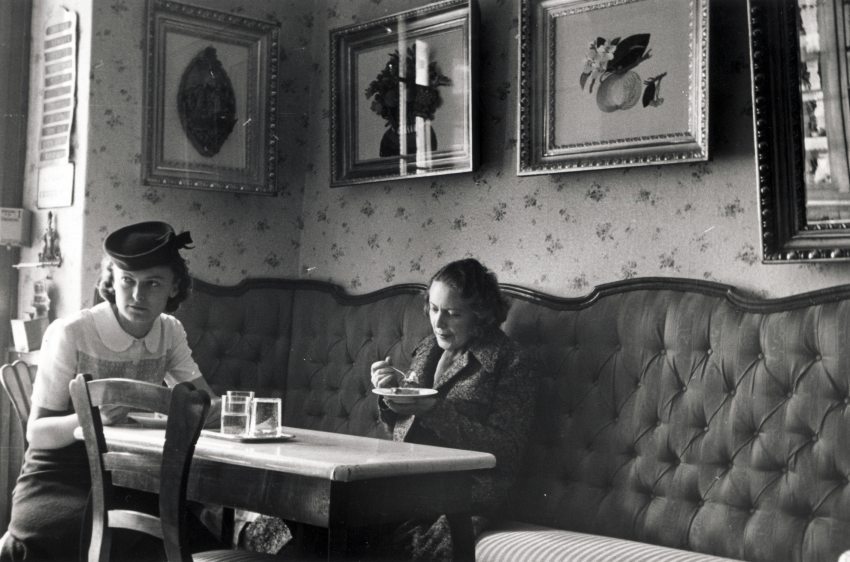
"Budapest, Nov. 19. The jazz violinist writhes like an epileptic. On the dancefloor, well-known members of the Pest art world are throwing their hot desire into charleston and the life of the elegant boulevard café would be the envy of any of its Parisian colleagues. In one of the boxes, the most interesting company squeezes in side by side. Ilona Titkos, Franci Gaál, Count C-y, a Hungarian lord, a progeny from one of the oldest family trees, Pál Forró, Gyula Színi, István Tyonauer, writers, Benedek Baja, painter, dancers, young men... A young, dark-eyed girl sits in the middle of the box. In her eyes the stifled fire of centuries past and the hidden tremors of years to come embrace. This young girl, Bora Silbiger, is the most interesting Hungarian woman of today, whose fame has even travelled to America" - wrote the Pécsi Napló of 20 November 1927.
Shattered dreams
The girl mentioned above, Borbála Silbiger, was born in Miskolc in 1894. Her father was a wealthy fabric merchant and her mother came from a family of entrepreneurs. Little is known about her youth – what is certain is that the girl, who grew up in Budapest, had an unstable temperament and had been treated at the neurosanatorium in Pozsony (Bratislava). Her legacy at the Hungarian Jewish Museum and Archives, which is rather incomplete, does not contain any documents relating to her studies, but the first newspaper articles about her refer to her as a "young medic". It is likely that she also studied medicine, but her family could no longer finance her schooling after the head of the family became bankrupt and took his own life. Had it not been for this tragedy, perhaps a world-famous neurologist or psychiatrist would have been added to the Hall of Fame of the famous Hungarians – thus however the young girl became the most famous and respected fortune-teller of the 20th century.
In stormy, uncertain times, people are especially hungry for guidance. The more absurd the events, the more they tend to look for solutions in strange, dubious places. In Hungary in the 1920s and 1930s, there was a horde of prophets, fortune tellers and occultists.
Silbiger Boriska was their uncrowned queen, who built and maintained her clientele with impressive creativity and unscrupulousness, and escaped time and again from the lawsuits often brought against her for fraud and occultism.
For example, the 12 June 1930 issue of the Magyar Hírlap reports the following conversation between her and the prosecutor, to the presumably considerable amusement of those present: 'Miss, get married and raise children. You're going to make a very beautiful mother." "I'd love to, but you must marry me off." In fact, of course, she never really wanted the conventional life that was meant for her and was very clever at building up her own myth, her own schedule, and her own client base.
Not fortune-telling, but rather character analysis
Boriska Silbiger has denied at each of her prosecutions that she made predictions for money. By her own admission, she only did character analysis from a graphological point of view and, being highly intuitive, sometimes had a premonition of the past or the future. What she did not add was that, in addition to her special sensitivity and her unparalleled logical thinking, she was aided in this intuition by her secretaries, who overheard the stories of those waiting for an audience as well as gave her excellent press coverage. She often drew attention to herself: in April 1927, for example, a night with a toothache turned into a scandal when two drunken gentlemen with black eyes jumped on the cab as she was going to the pharmacy, to which she protested, sobbing and shouting. People hearing the ruckus she made came running out of three cafés onto Teréz avenue, and together with two policemen on bicycles, chased the attackers, who had meanwhile disappeared, and the coachman of the cab – together with Boriska, who was wailing loudly – chased after them. The little interlude almost ended in a lynching, but, as the victim later said, "the excitement made her tooth get better".
The mysterious prophetess had some strange quirks. She was notoriously terrified of technical gadgets such as cars, and would only travel in a horse-drawn carriage – which, of course, was always a scandal, as she would occasionally have a disagreement with the coachman about the fare and how to pay it. Despite this, she was also well informed about cars: in 1936, for example, she gave an interview to the Autó Motor magazine about the future of motoring and racing.
"The Pest Prophet Underworld"
Her primary hunting ground beside the distinguished circles was the theatre world, where she predicted successes, failures, and romances for those who approached her.
One of her appreciators, Ágnes Fedor, wrote that she belonged to the world between the stage and the dressing room, and knew many secrets, which she kept faithfully. Her remarkable memory enabled her to see into the lives of an astonishing number of people – by her own admission, she knew and traced the fate of nearly 100,000 people in relation to her 20,000 clients. At first, she would meet people at the Szalay cafe in a meeting place on a boulevard in Lipótváros, where they would ask her their love questions, and then, to avoid being exposed to the authorities, she would organize her strictly controlled nightly séances in a variety of locations. She had certain principles. On more than one occasion, both the deceived wife and the lover came to her for advice, and she, being strictly pro-marriage, could hurl terrifying invectives at the intruder.
In April 1939, the police launched a large-scale operation against "the prophet underworld" in Pest. The prophetess on Izabella Square was arrested, as were Paul Haar, the "X-ray-eyed man" and the prophetess known as the White Woman of Óbuda, but the biggest catch was Boriska Silbiger, who was eventually prosecuted for social parasitism. Many people gave up their illegal activities when she was caught.
She saved lives with her advice
As the Second World War and the threat to the Jewish approached, she devoted much of her energy to persuading her clients to flee as quickly as possible. Many owed their lives to her. It is not known where she herself survived the Holocaust.
It is possible that she was given refuge by her influential supporters, but it is also possible that she managed to emigrate to America – Sophie Török's diary gives this explanation.
Of course, it could have happened similarly to the novel Karola and Her Age by Ágnes Fedor, in which the protagonist, modeled on Silbiger Boriska, is saved by a poor woman merchant, innocently convicted of murder, who gives her her "office" for the time being.
All that is known is that the house where she lived was bombed on 2 June 1944, so many people thought and rumoured that she was dead, but in 1946 she was certainly in Budapest: she retrieved her necklace from the Sisters of Social Service, and in a snappy manner she sent away an intruding journalist who was in her house, declaring that from now on she would dedicate her life to God. It could have happened like that, and many would have believed it, as she continued to lead a rather low-key, quiet life, but her clients seeking advice always found her. In his biography, published in 2020, painter Miklós Szüts recounts how Boriska was a lodger in the family home in the first half of the 1950s. Little is known about her later fate, but her accessible legacy reveals that in the 1950s and 1960s she earned and supported herself by trading in foreign stock markets and continued to give investment and life management advice to her trusted clients.
The memory of a hope-giving prophetess
There are several stories about her death. Some say that she died at the age of seventy-six, in the spring of 1970, in the Jewish Charity Hospital, with a broken mind.
Others, however, remember her walking her alarming-looking black kuvasz dog in St Stephen's Park, who faithfully guarded the dead body of the well-known yet deeply lonely woman even when her door was broken down by the ones worrying for her.
She was buried in the New City Cemetery on 2 April.
In 1972 Ágnes Fedor published the aforementioned novel Karola és kora (Karola and Her Age), which is a kaleidoscopic view of the unbalanced society of the 1930s and 1940s. The book was also shown on television: in one of the programs of the Open Book series, Ilona Béres played the role of Karola, i.e. Silbiger Boriska. She last appeared in 2019 in Kristóf Deák's film Captives.
Precious scrapbooks
When processing the legacy, Sándor Scheiber published some of the most exciting entries from one of the fortune teller's scrapbooks in Life and Literature magazine, including lines by Attila József or a poem by Zseni Várnai. Attila József wrote in the scrapbook on 17 January 1930, at a quarter to six in the morning, "She said things I like, so I believe in it and I will do it!" György Landeszmann also analysed the volumes: in the 15 August 1982 issue of Új Tükör Magazine he published the most notable entries, including lines by Pál Ignotus, Attila József, Frigyes Karinthy, Hugó Kelen, Henrik Marczali, Mária Mezey, Márton Rátkai, Béla Salamon, Ernő Szinetár, Gyula Színi, Aránka Váradi, Zseni Várnai, János Vázsonyi and Ferike Vidor.
She remained a "doctor" all along
The biggest challenge with Boriska Silbiger is that the gaps in her life story can be filled in too many ways. We can talk about her as a psycho-paraphenomaniac who on several occasions led the police on murder cases, and in early 1935 'predicted' the Italian-Abyssinian war that broke out that same year. She can also be seen as an obsessive graphologist, a lover of letters who believed that certain monograms determined our lives, and someone who was a well-known and respected expert in this field.
In 1929, for example, she was the first woman forensic writing expert in a criminal case - but she didn't lose her head: she predicted the defendant would be acquitted.
On top of all this, she was also a brilliant swindler, who bravely and unscrupulously ignored the relevant legal requirements and everything that society would have expected of her. Ultimately, even as a fortune-teller, she remained a doctor who knew that she could heal by listening to those who came to her. Boriska Silbiger was a great and relatable connoisseur of the human soul and the spirit of the times, at a time when many people were hungry for a listening ear and for hope. It is a pity that we have only stories (but beautiful stories) left of her.
